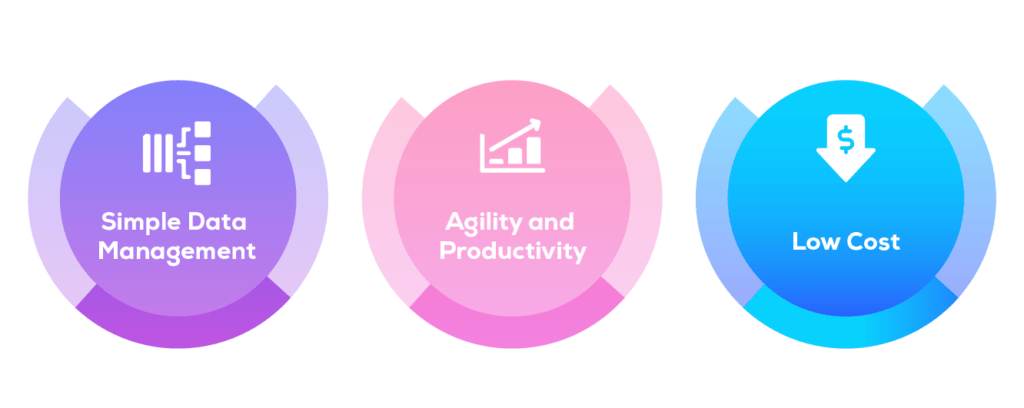Data-driven decision making, agility, accessible data for everyone… Data virtualization is an approach that comes into play at this point.
Data is everywhere, and leading organizations are building their strategies based on data. Organizations are increasingly relying on different and diverse data sources for their analytics needs. The number of resources may reach thousands or even millions. Therefore, collecting, managing, storing, processing, and analyzing data from many different sources cause complexity, cost, and time loss.

What is Data Virtualization?
Data virtualization describes a data management approach that allows data to be accessed and performed without the need for details such as where the data is physically located or how it is structured. This approach enables all corporate data stored across different systems to be integrated and presented to business users in real-time. It achieves this by creating a virtual/logical layer with the ability to transform data in virtual views while all data remains in the source systems. This virtual layer provides simpler and more efficient data management. The aim here is to be able to access data from multiple different sources in a single place without copying or moving them to reach faster and more accurate results. This not only reduces data replication and storage costs but also provides less risk in data-driven decision-making processes.
How Data Virtualization Works
We can define data virtualization as a modern approach to data integration Unlike solutions that replicate data, data virtualization stores data in source systems and provides business users with an integrated view of all data. Data virtualization fetches data from source systems in real-time as users drill down into their queries. It uses the efficiency of linking data rather than collecting it. This is how structured and unstructured data from distributed systems come together on a single interface.
This approach supports the concepts we frequently mention, such as self-service BI, data democratization, real-time decision making, 360-degree data view, and discovery by providing a central access point and secure management of data. This approach also plays an important role in authorizing access to data.
Sources like Gartner and Forrester confirm that data virtualization has become a critical data strategy for organizations that aims to take the advantage of data they own. We can summarize the benefits of data virtualization for an organization as follows:
• Real-time analytics that meets the urgent needs of the organization
• Reducing the cost and complexity of accessing corporate data
• A 360-degree approach to data
• Agility
• Profitability, growth, and risk reduction

We support this modern data approach with our products by bringing together data from distributed systems and sources on a single interface for analysis. Contact us to learn more!
